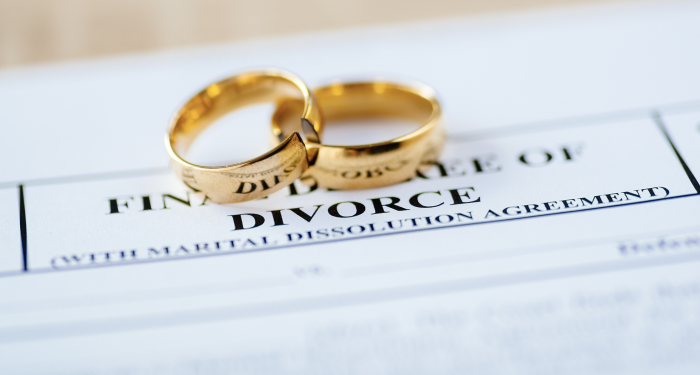Even with the advent of no-fault divorce, people are failing to consider pension assets when divorcing, as pension sharing orders have fallen 35 per cent since 2017, according to the Ministry of Justice.
A survey by Stowe Family Law polling 400 women aged 35 – 64 around the UK was designed to understand and help address the increasing imbalance in the UK’s gender pensions gap.
The Stowe study found that 60 per cent of women said they did not get a pension share from their ex-spouse as part of the financial terms of their divorce, while 12 per cent were unsure.
According to the poll’s findings, most women are unaware of their spouse’s private pension. Nearly 25 per cent of the married women who took part were unaware that their spouse had a private pension, and 77 per cent were unsure of its size of it.
While 70 per cent of women who did have private pensions were unaware of their value, 17 per cent of women claimed they don’t have them because they don’t understand them. The fact that so many women are unaware of how valuable a pension is financially can work against them in a divorce.
The government issued a briefing paper on the gender pension gap in April 2022, and it provided legislative recommendations to help close it. It also makes the case that pension rights should be made a required part of divorce procedures.
Stowe Family Law partner Matthew Taylor says: “At Stowe, it is extremely common for women to say that they want the matrimonial home in a divorce and don’t mind the husband keeping his private pension in full. This was backed up by our survey, which revealed that half of the women aren’t convinced that they would consider the pension pot as an important factor in a financial settlement upon divorce.
“Financially speaking, failing to take into consideration the pension pot during divorce proceedings is an unwise move – especially for women.
“We encourage women who are going through a divorce to think about the long-term financial ramifications of not seeking a share of their spouse’s pension. This is more important than ever, at a time when the cost of living is the highest it has been in 40 years.
“We must debunk the assumption that pensions are too complicated to be worth understanding. Women who receive a share of their ex-spouse’s pensions will reap the much-needed benefits later in life when so many women would otherwise be faced with retirement poverty.”
Taylor adds: “The dramatic drop in pension sharing orders, down 35% since 2017, highlights the growing number of people overlooking pension assets in divorces.
“But this can be at their peril. All too often, I hear clients say they want to keep the family home at all costs. And whilst this is understandable, overlooking or forsaking pensions can mean people are missing out on potential long-term income and future financial security.
“Changes to divorce recently, including the arrival of no-fault divorce, have made the process for divorce more amicable and straightforward. This is to be welcomed. But on the flip side, it leads to couples not getting the right advice, as they have less need for expert legal help and are focused on meeting immediate financial needs.
“And whilst this is not always the case, this issue significantly impacts women. Already affected by the startling gender pension gap, there is a 56 per cent difference in average pension assets held by men and women at retirement age, divorce further exacerbates the problem, leaving many women facing poverty in retirement.
“In a recent survey by Stowe Family Law, 70 per cent of women do not even think about seeking a share of their husband’s private pension. They simply fail to understand the long-term financial significance of this asset.
“Pensions are complicated, boring, and distant for those who are not imminently approaching retirement age. Many people fundamentally do not appreciate the true value of their pensions. That is particularly the case with valuable public sector schemes, as the headline figure for the value of those pensions used in divorce proceedings (known as the CE or Cash Equivalent) often does not accurately reflect what is likely to be received in retirement.
“Any spouse looking to retain cash or property in lieu of a pension based on its CE runs a significant risk of not getting full value for the pension share they are sacrificing. As the cost-of-living crisis deepens, and life expectancy rises, divorcing parties must ensure they educate themselves on their financial claims following divorce, and take advice – both legal and financial – to ensure they are considering not just their current financial position, but what the future will look for them over the medium and long-term.”





